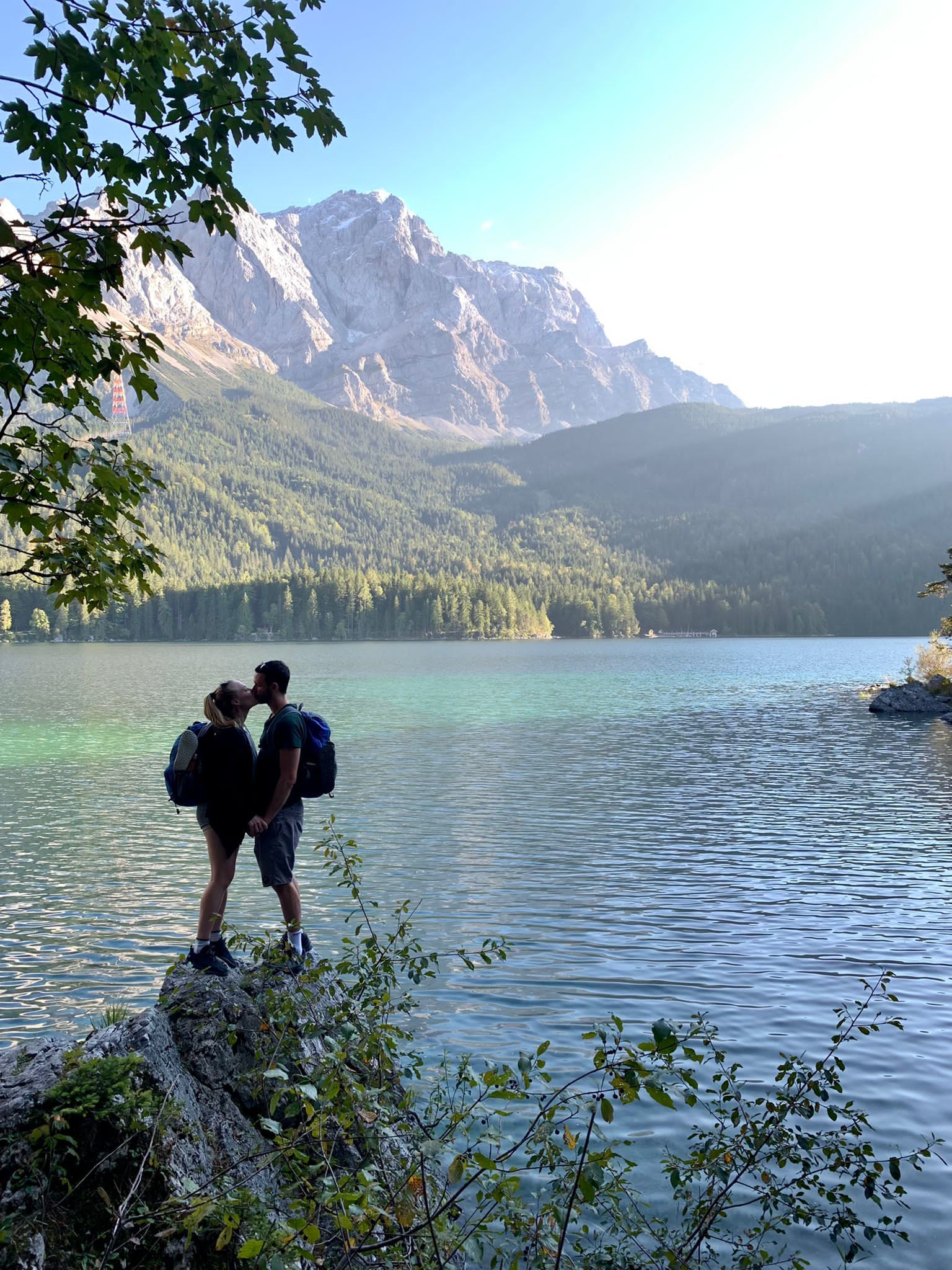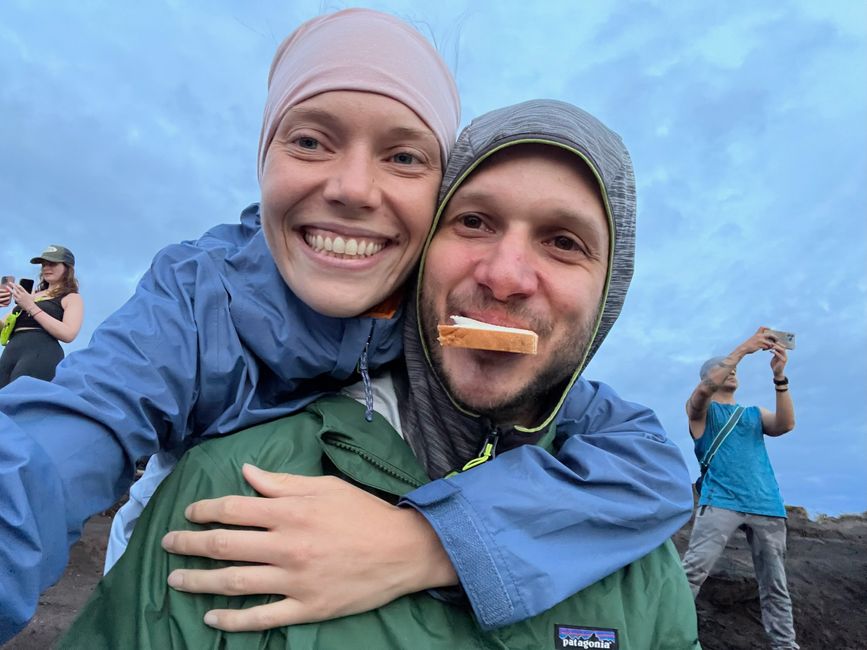
janas-und-philips-weltreise
vakantio.de/janas-und-philips-weltreise
San Cristóbal - Galápagos
Ishicilelwe: 11.08.2023
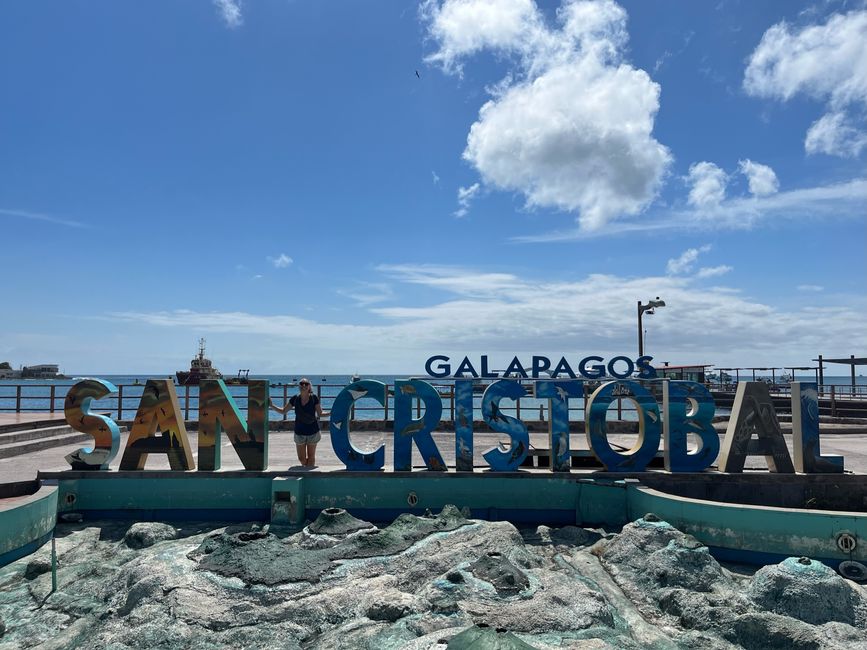
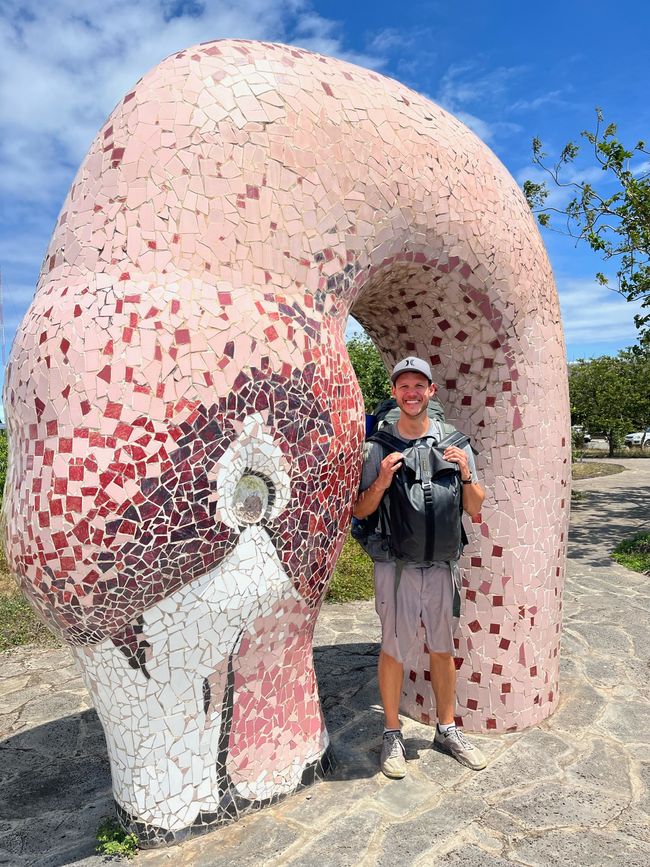
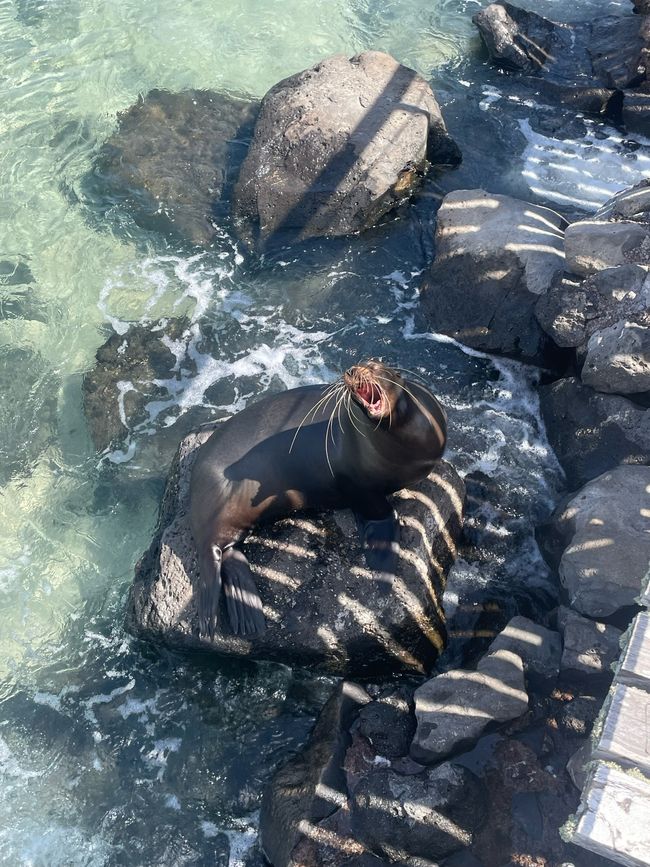
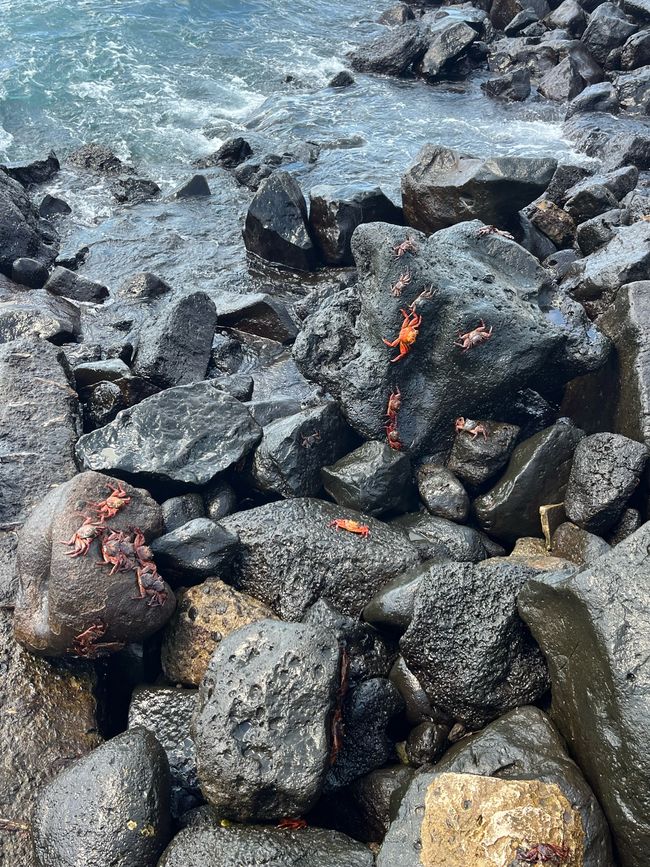
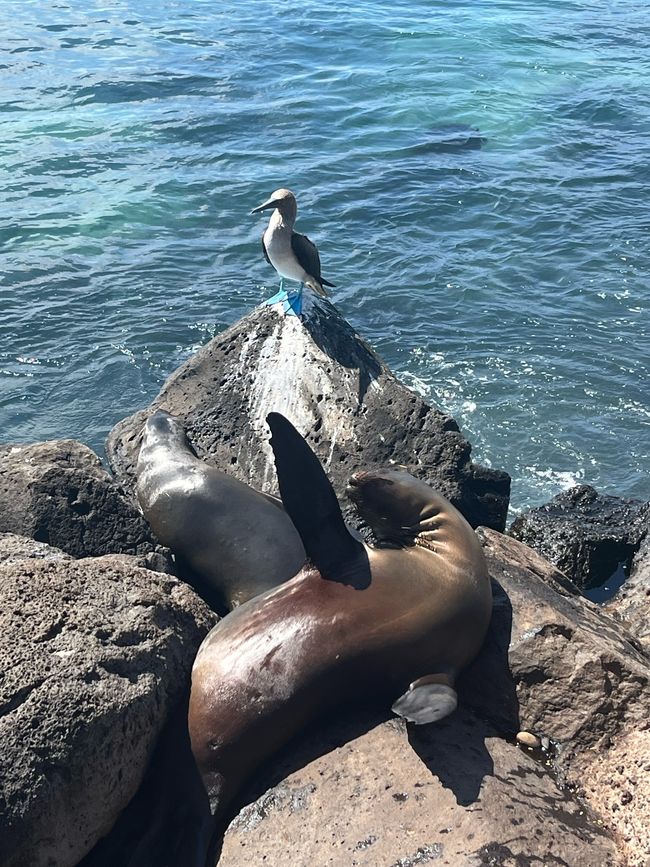
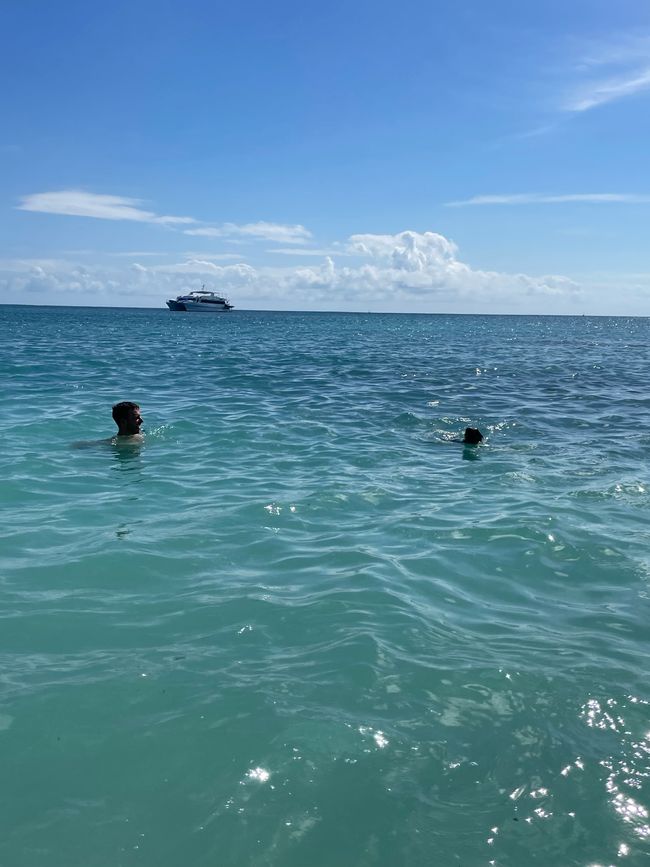
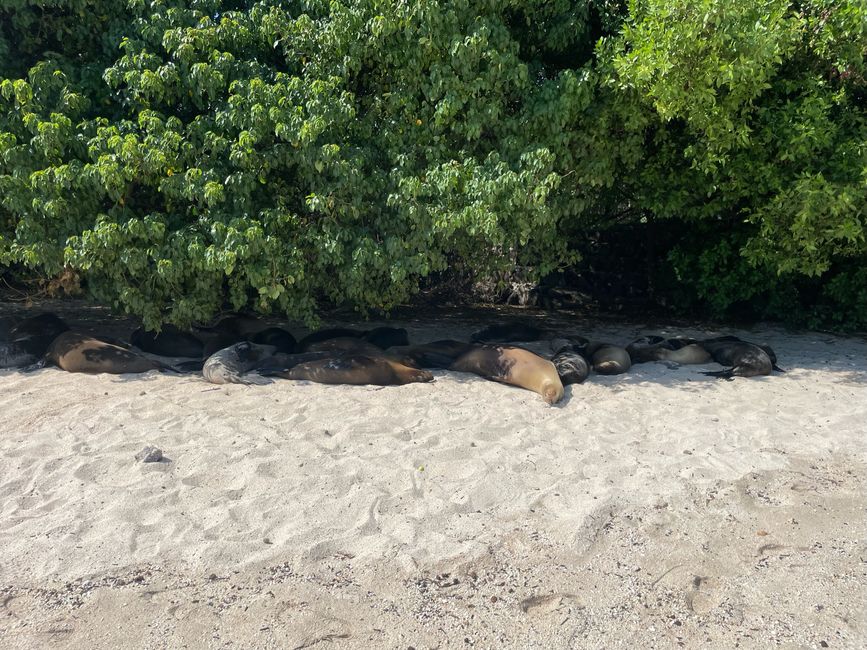
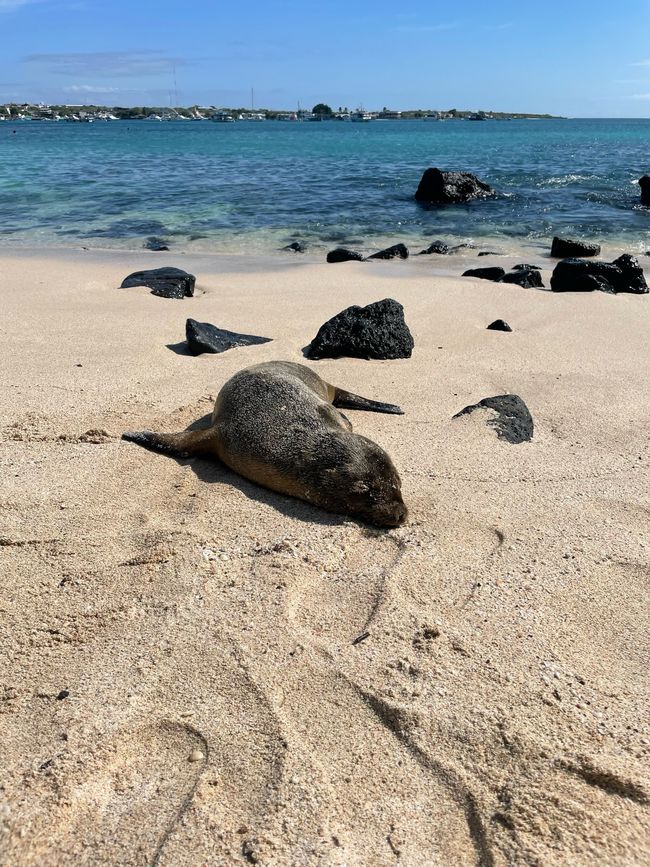
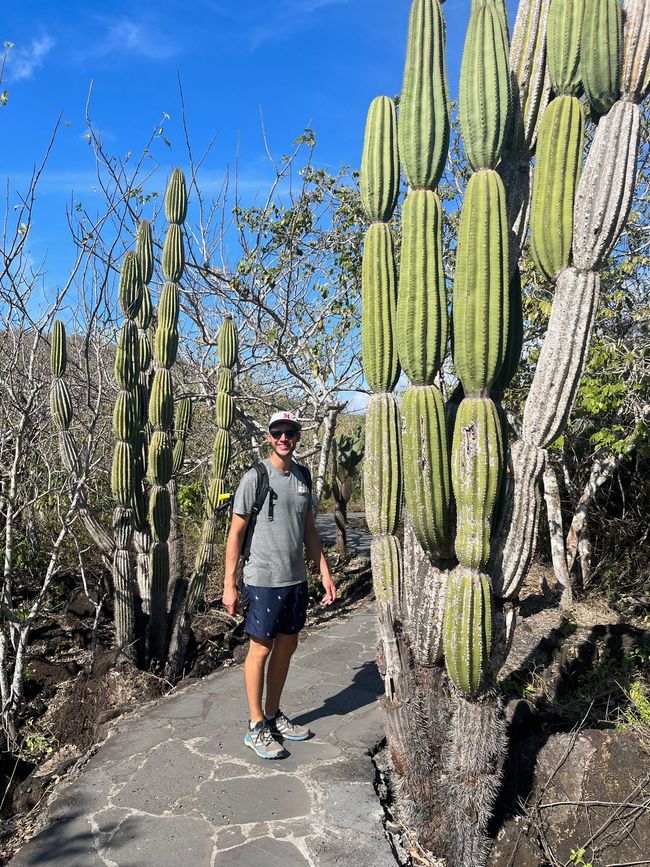
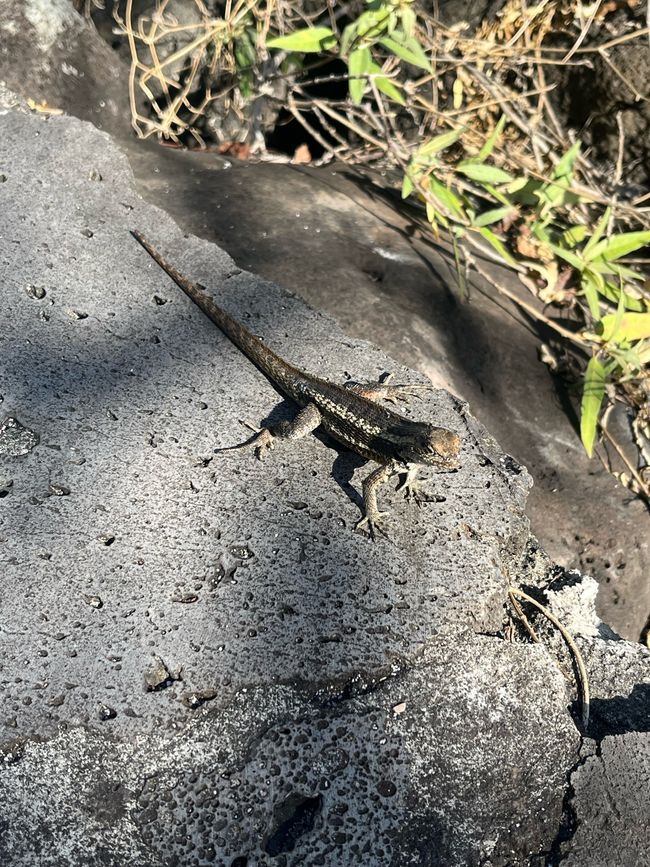
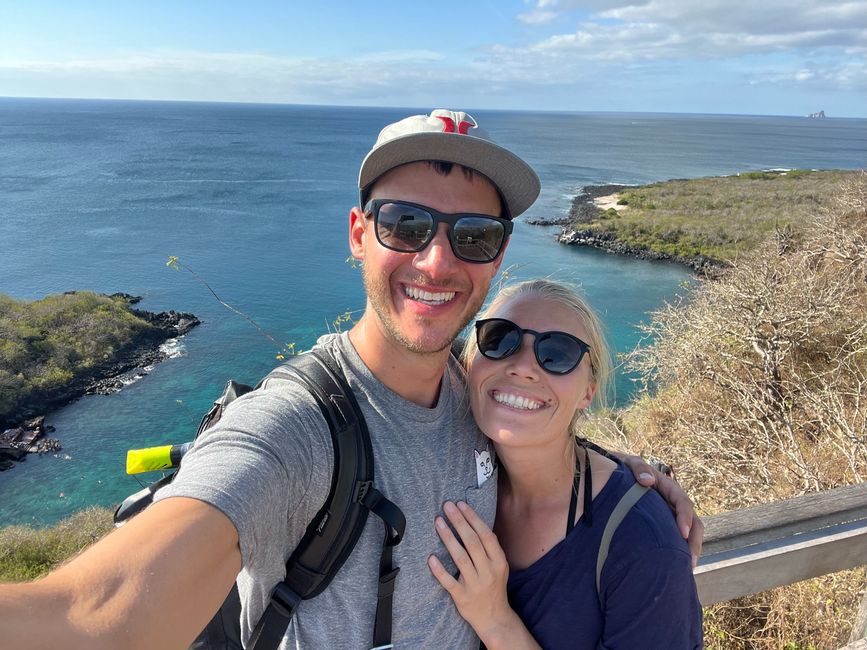
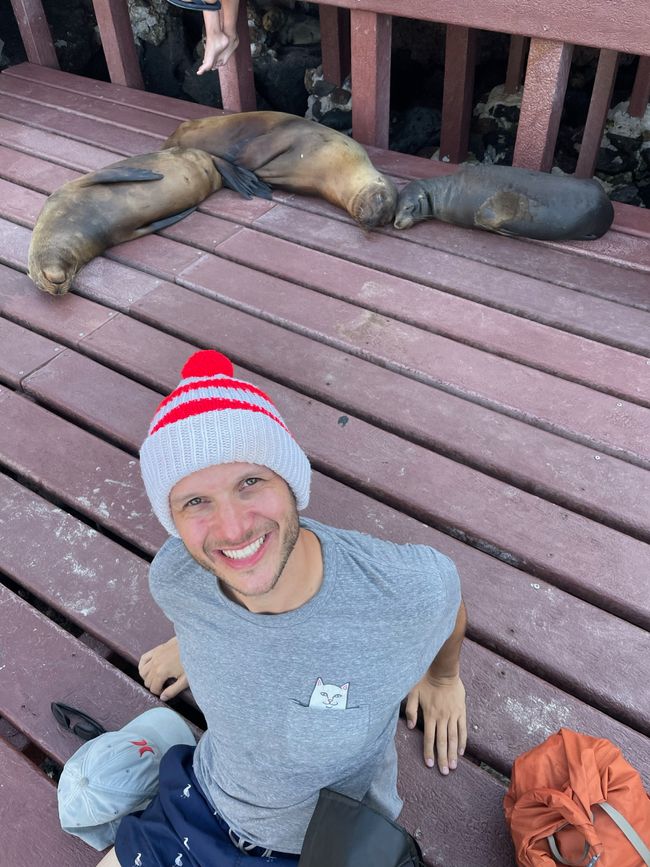
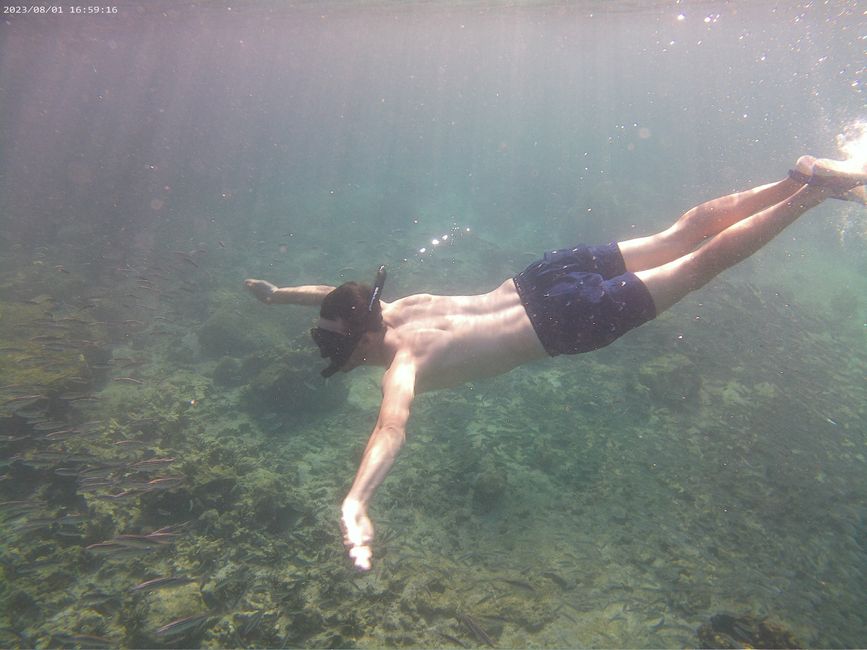
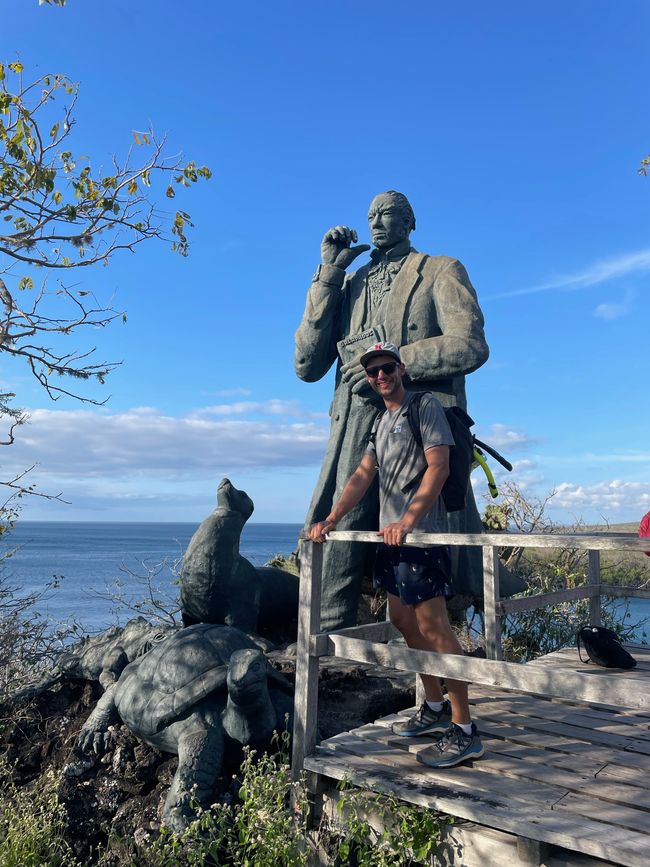
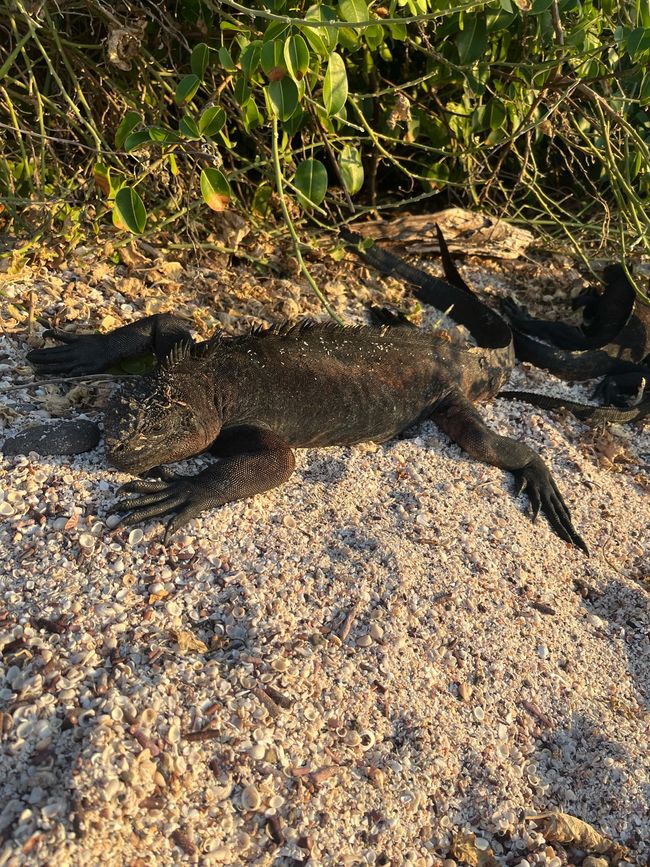
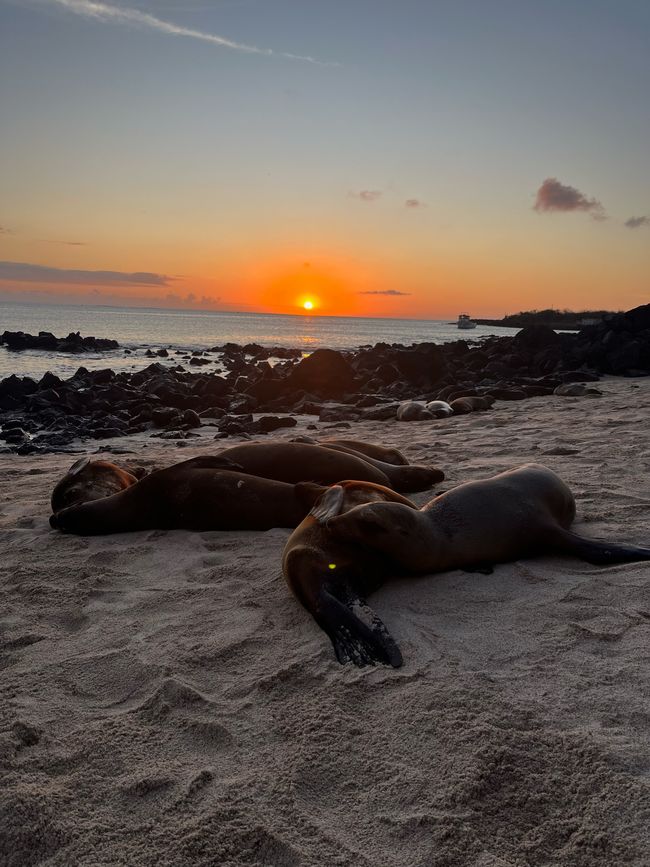
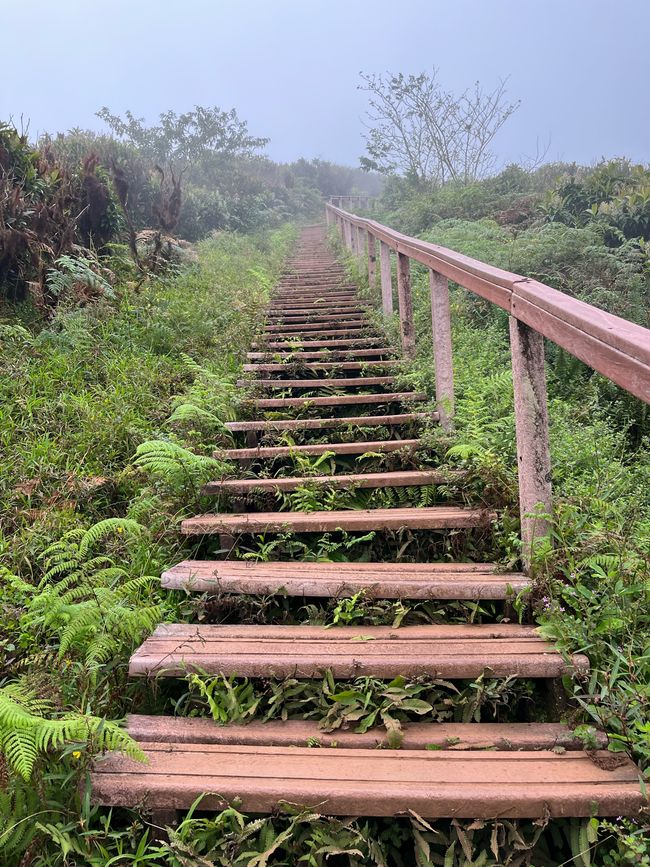
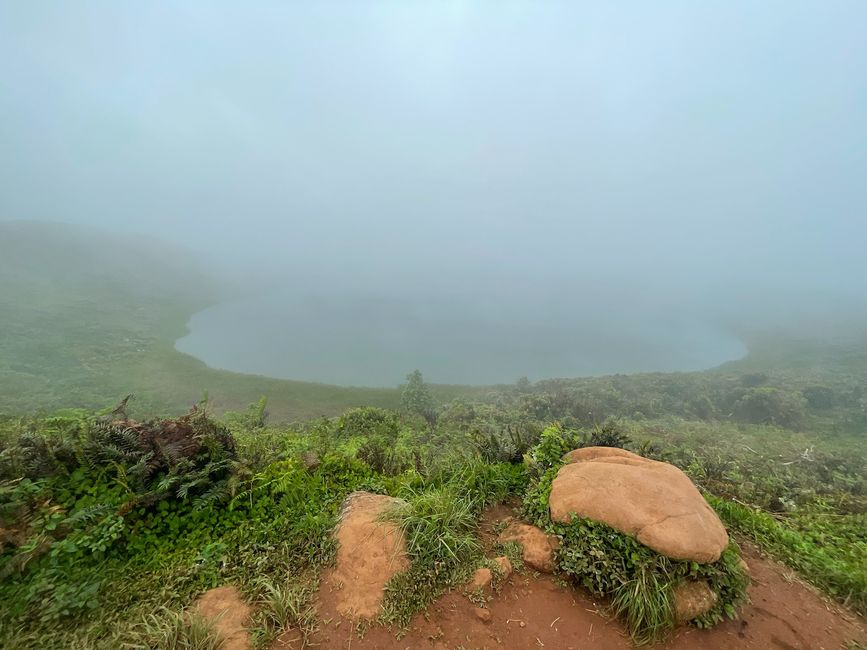
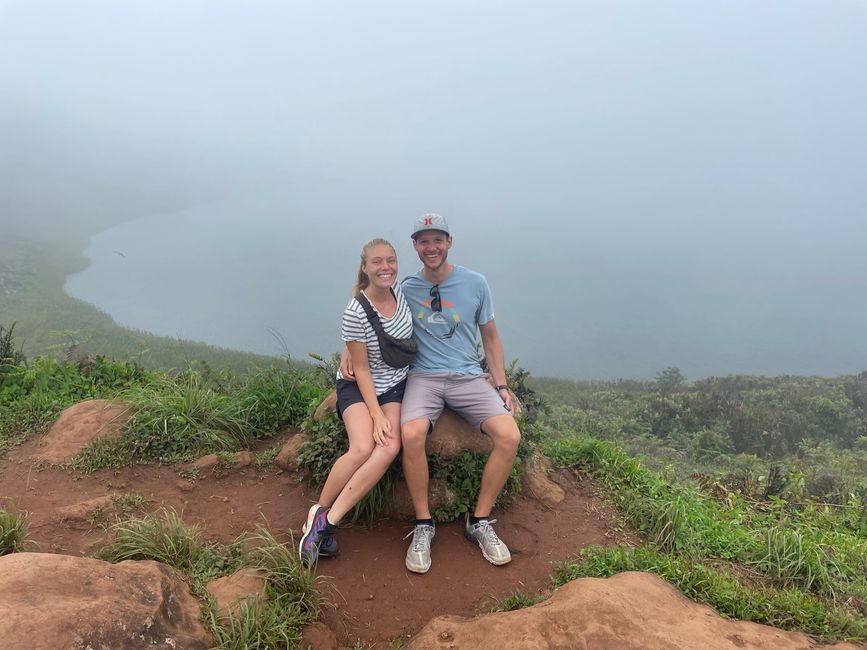
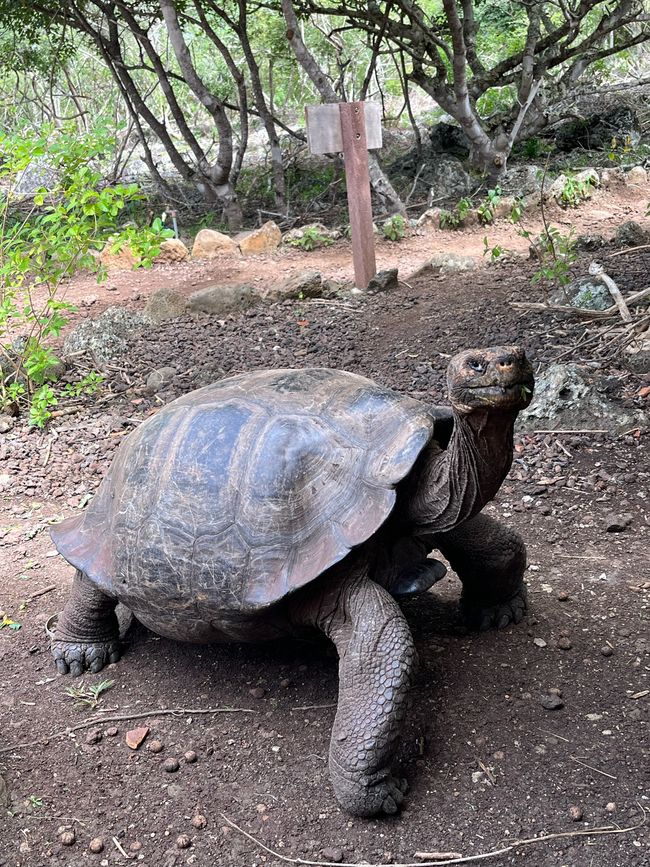
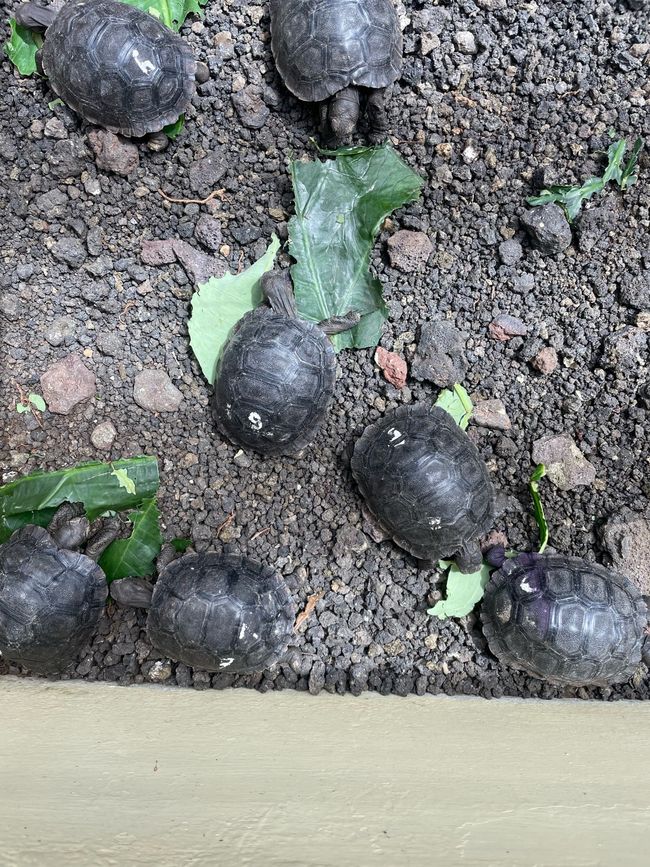
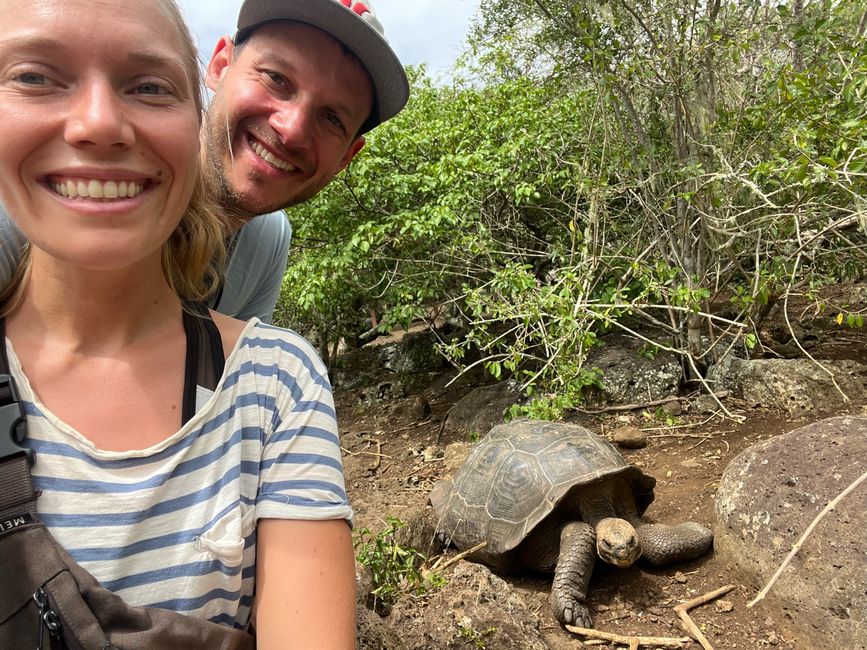
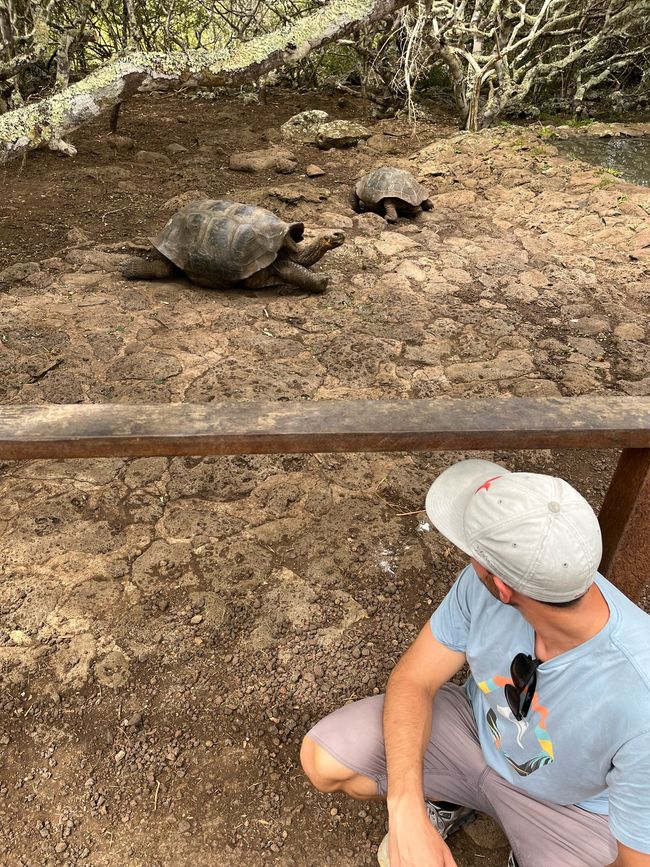
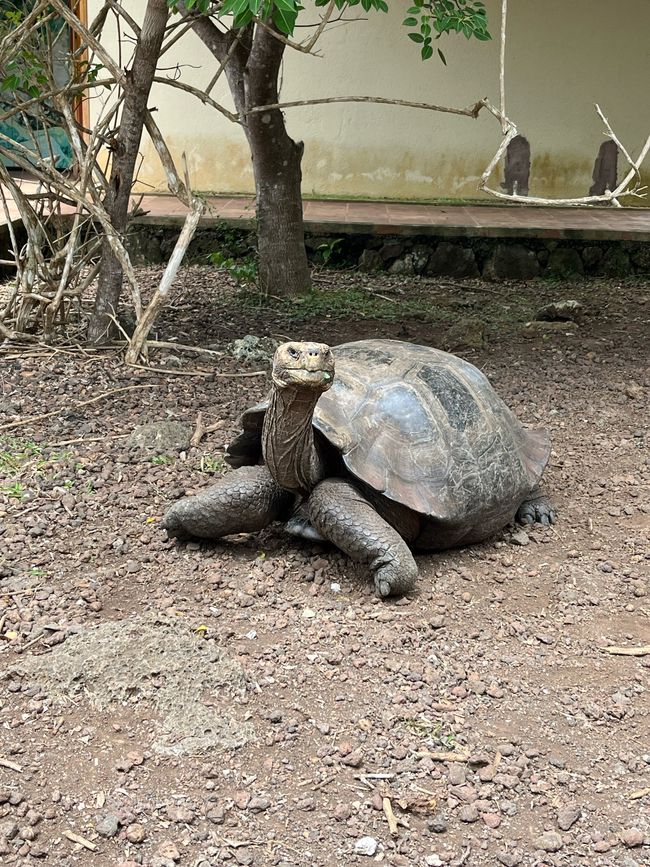
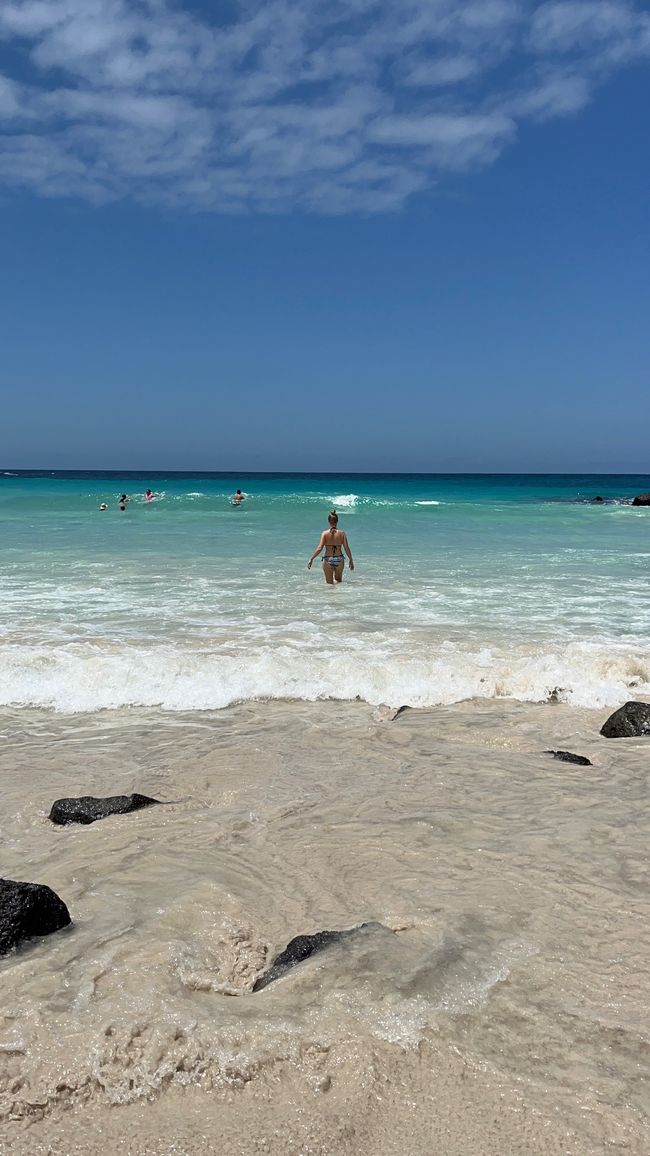
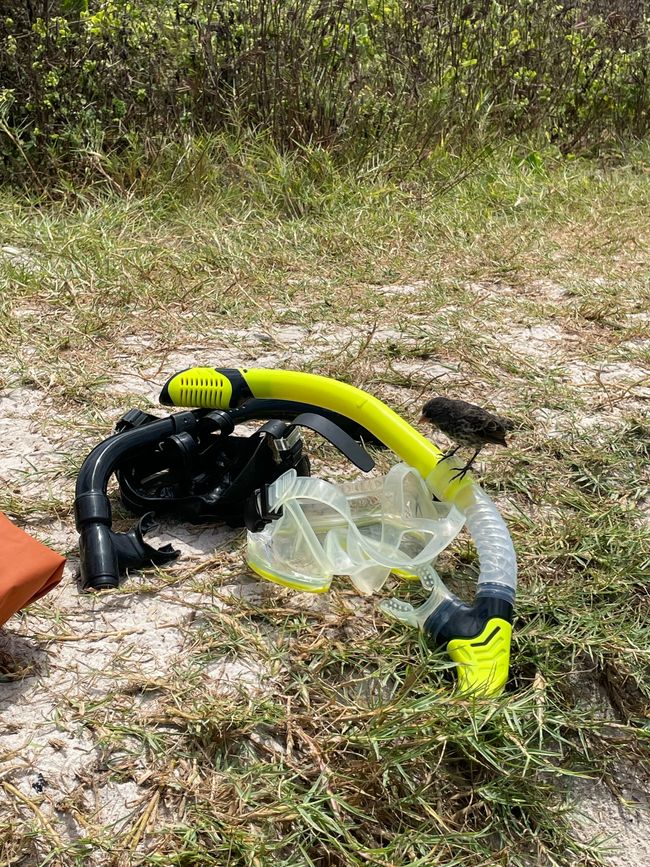
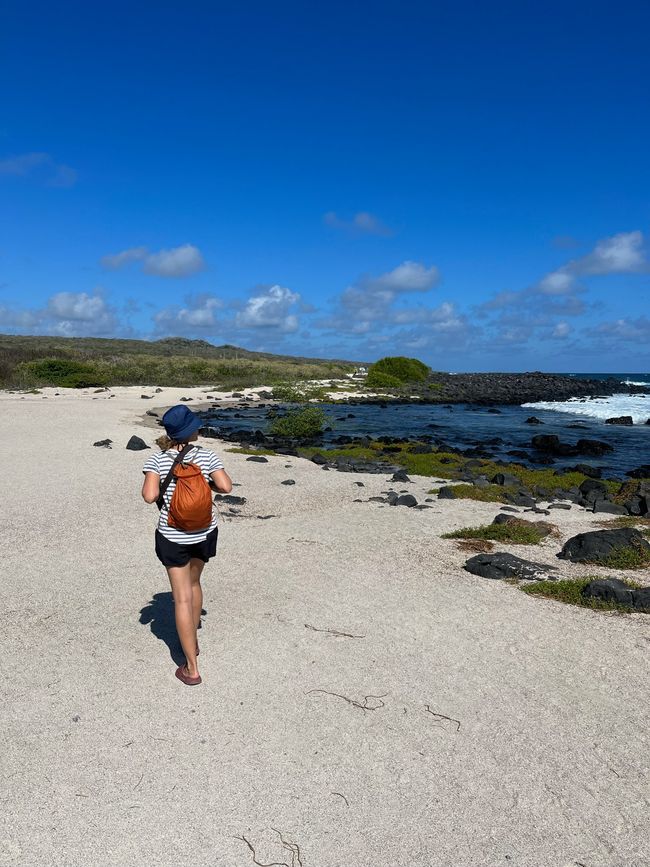
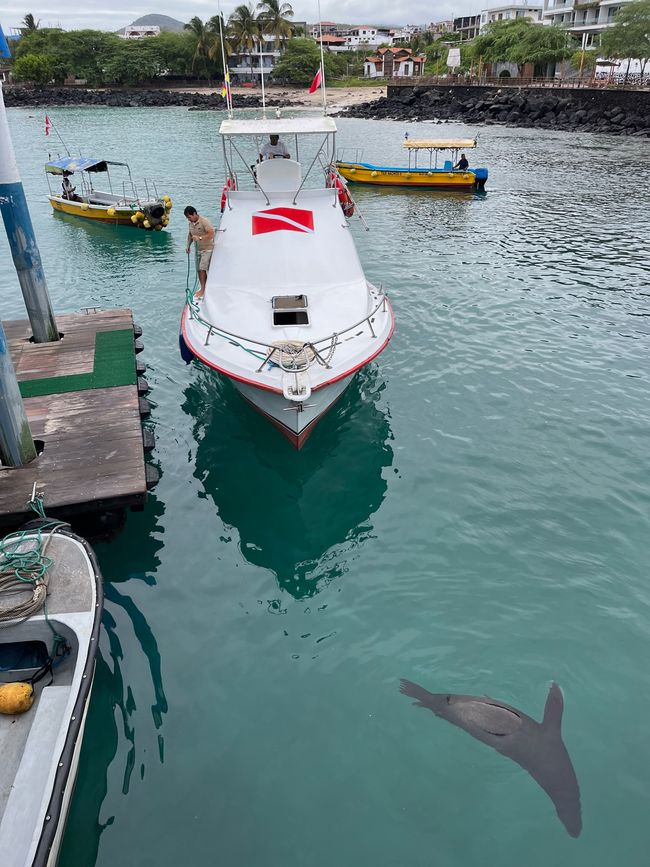
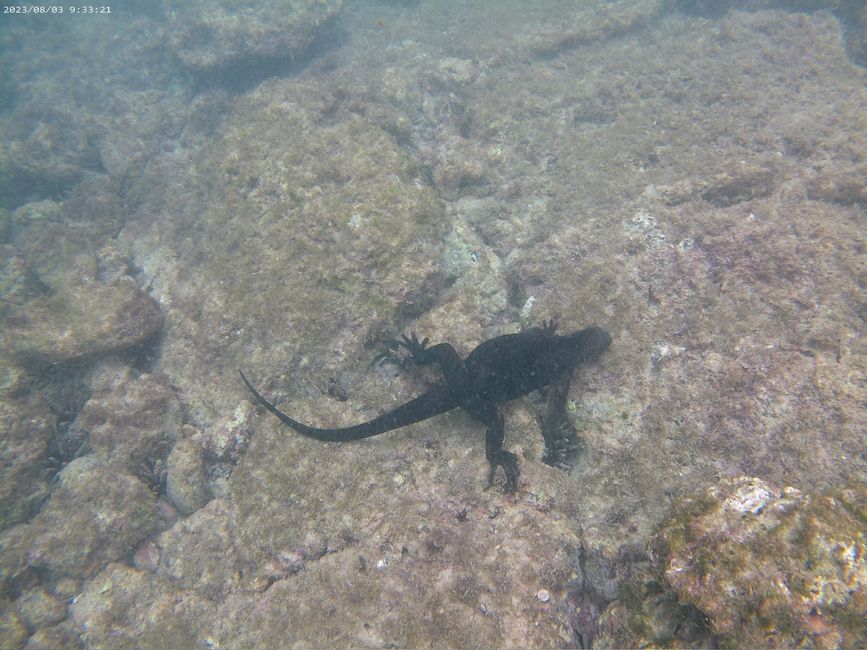
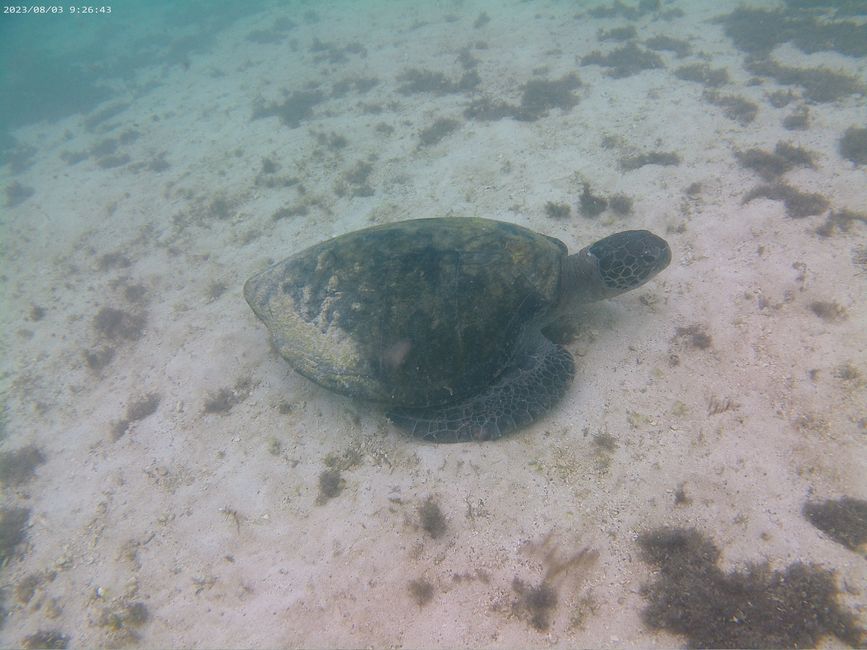
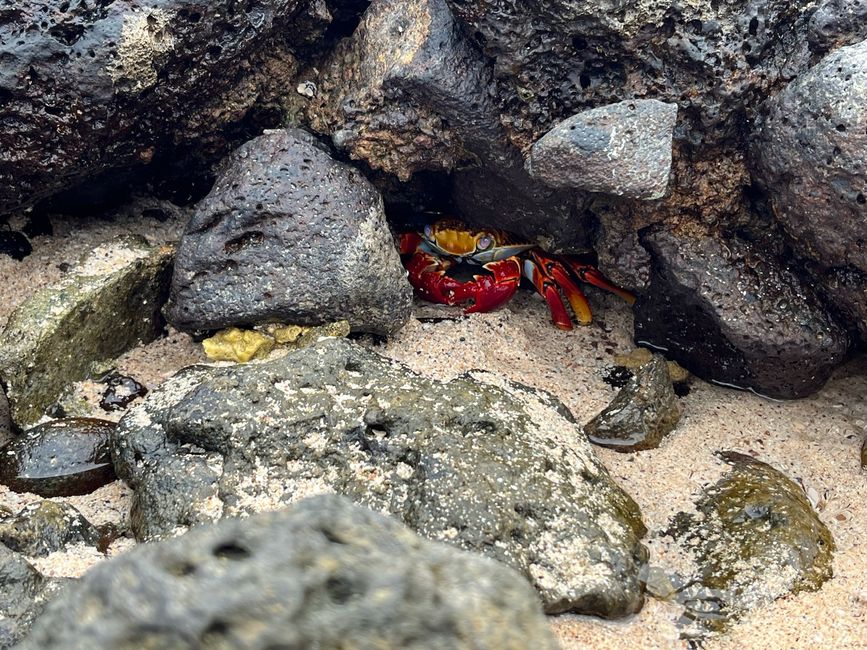
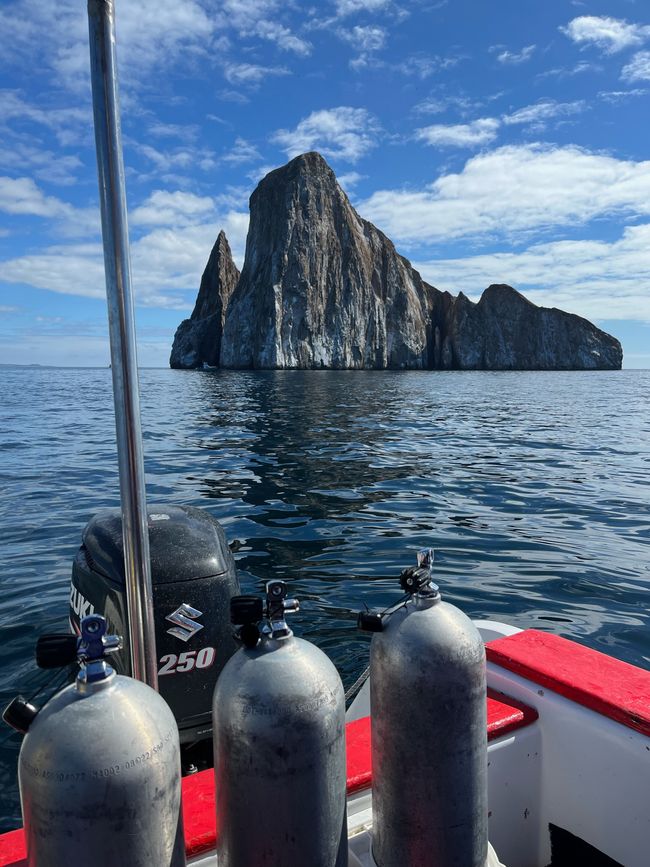
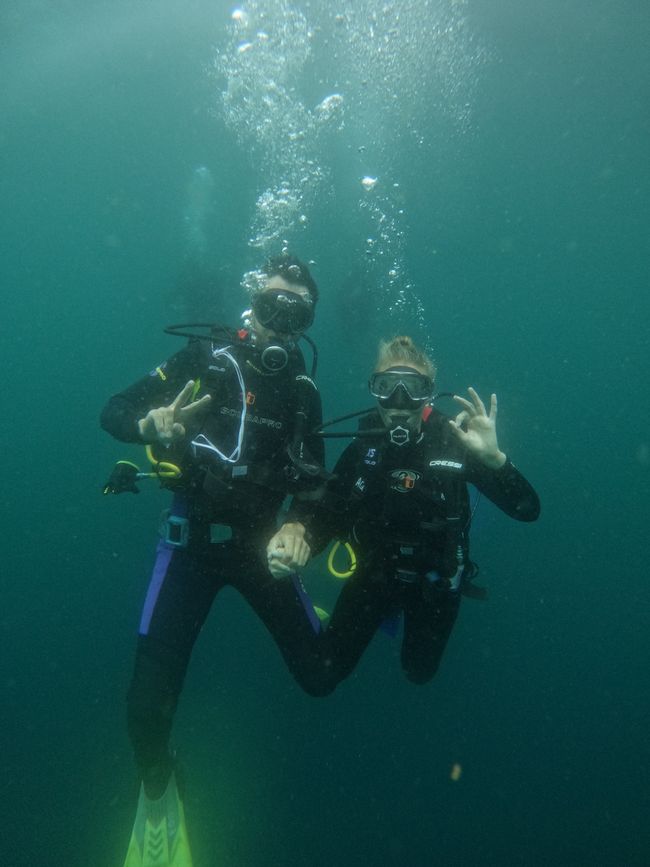
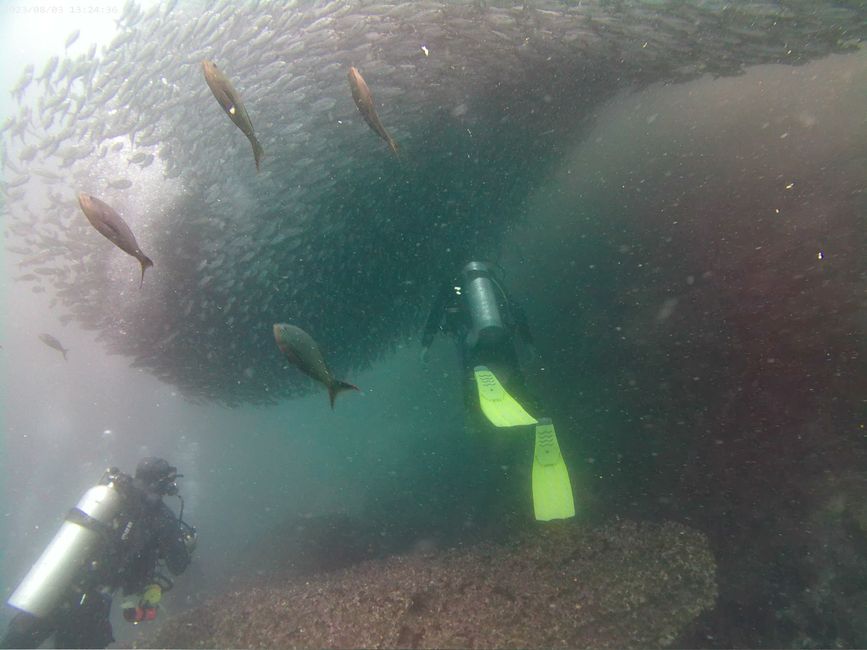
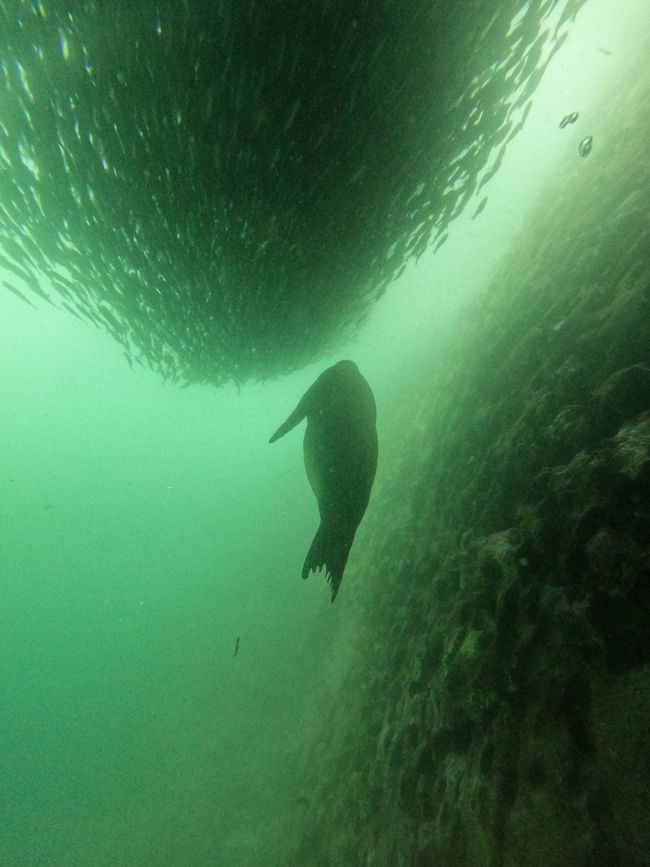
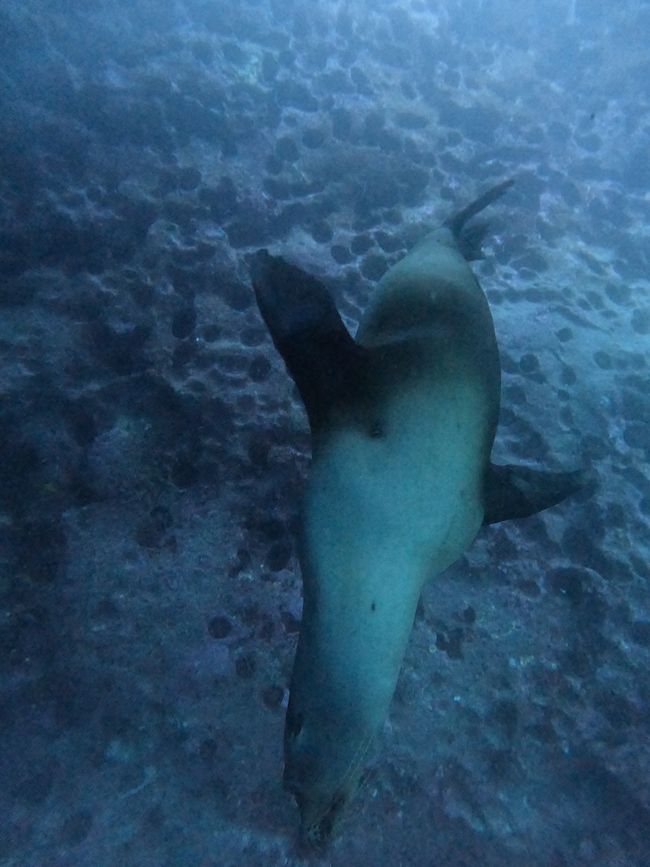
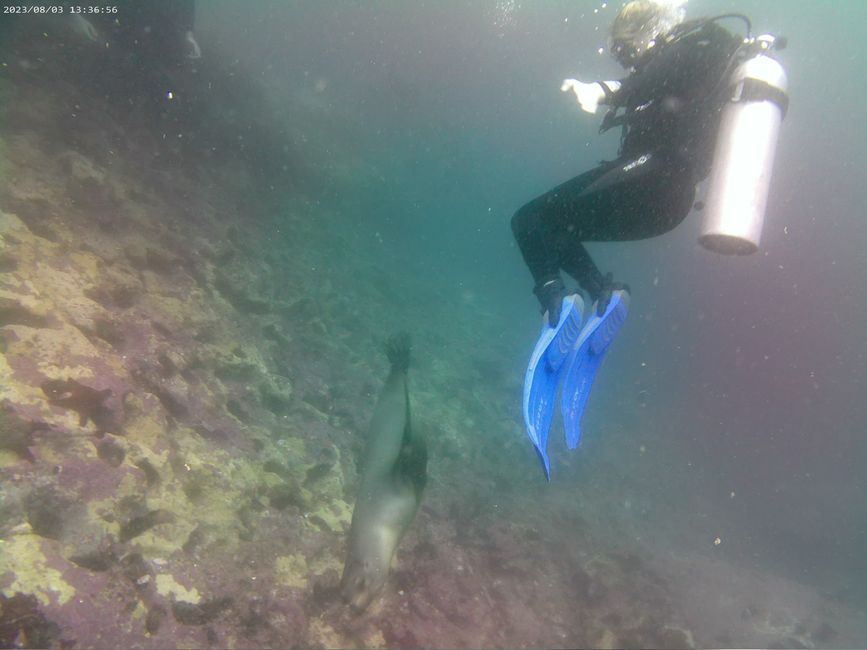
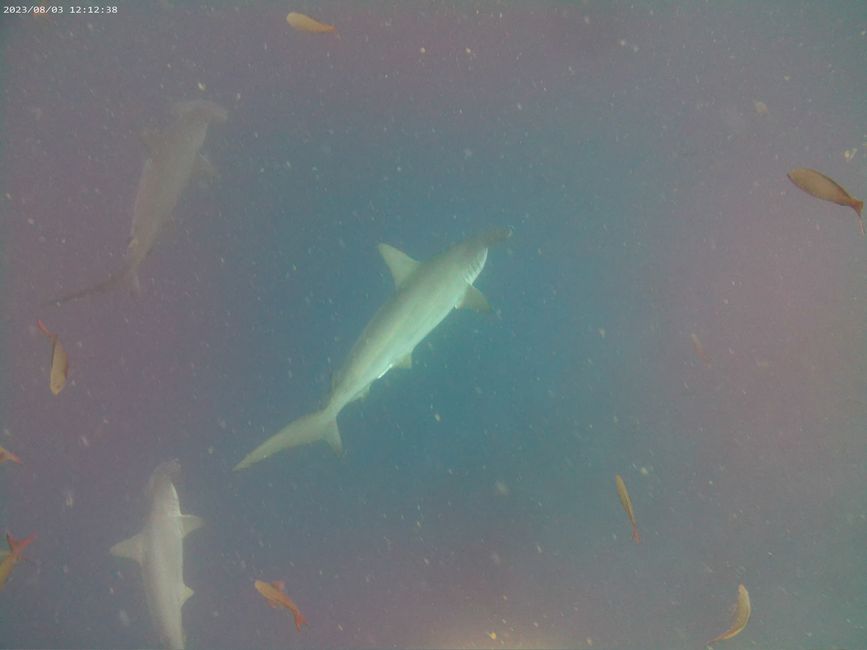
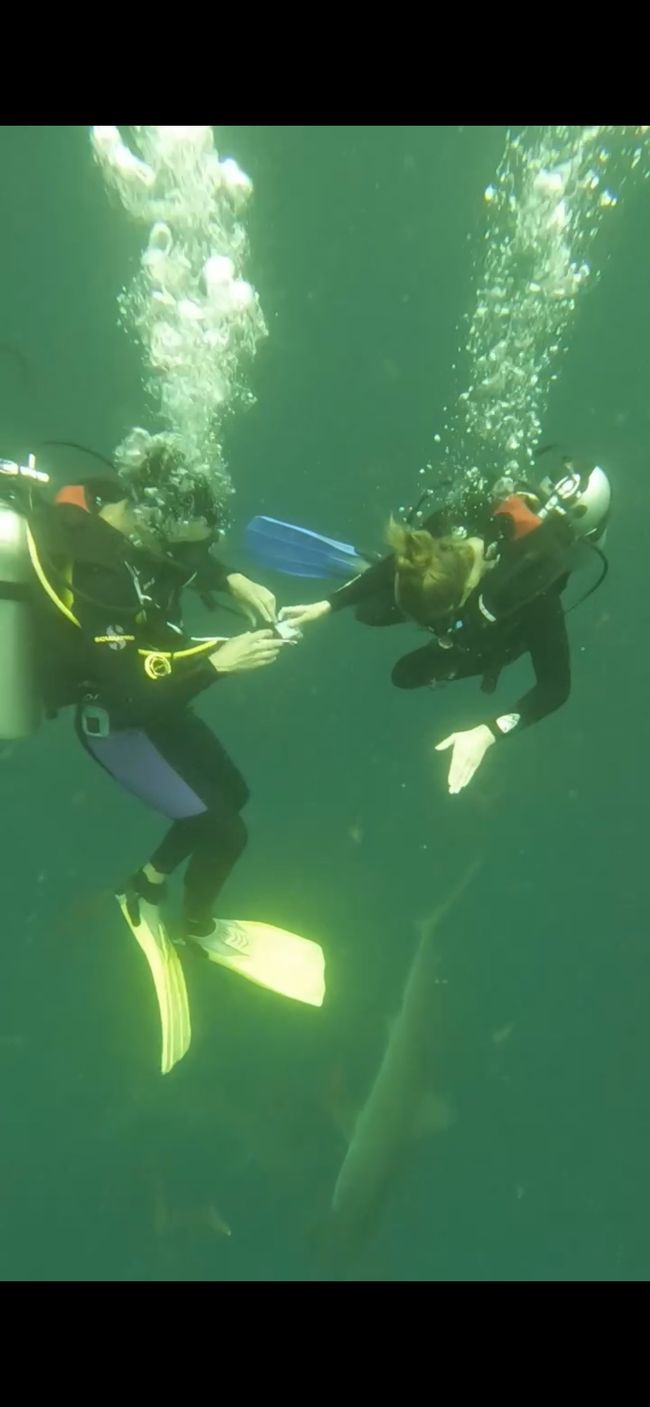
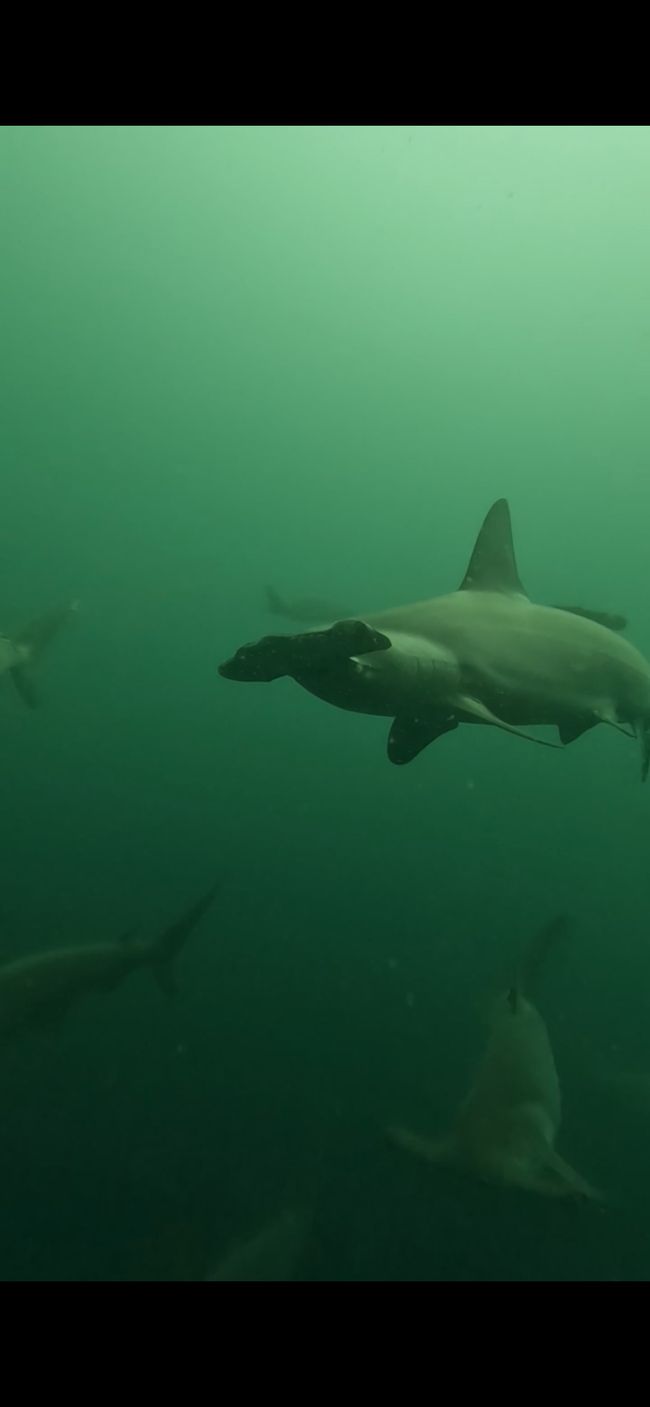
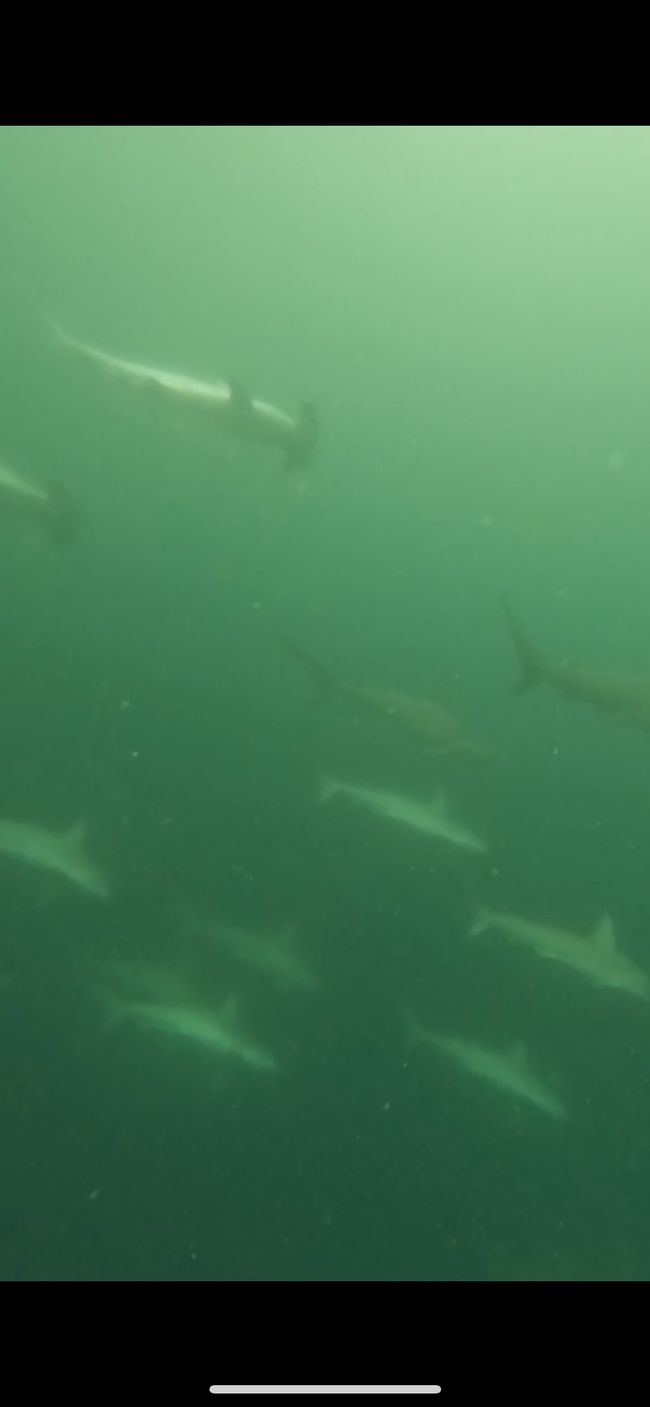
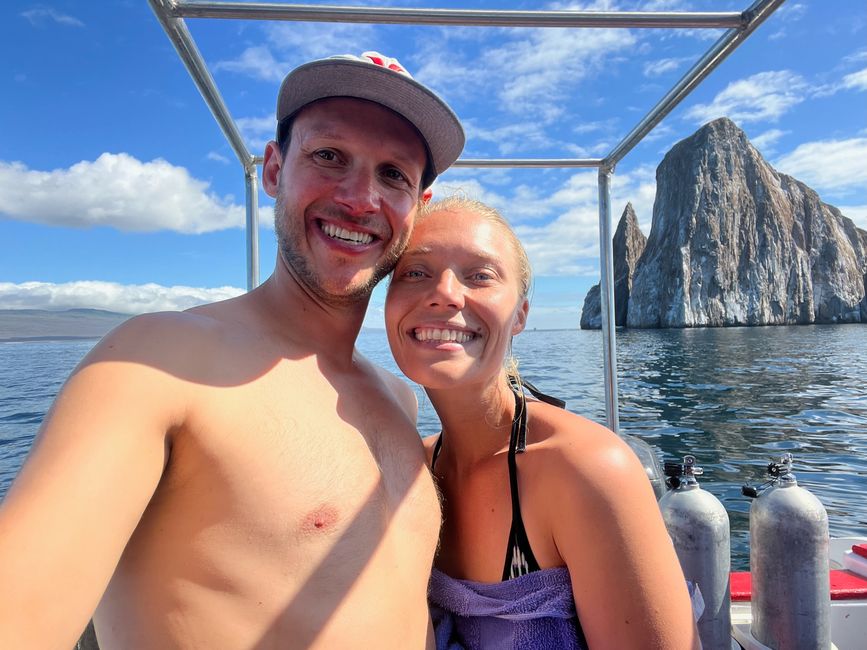
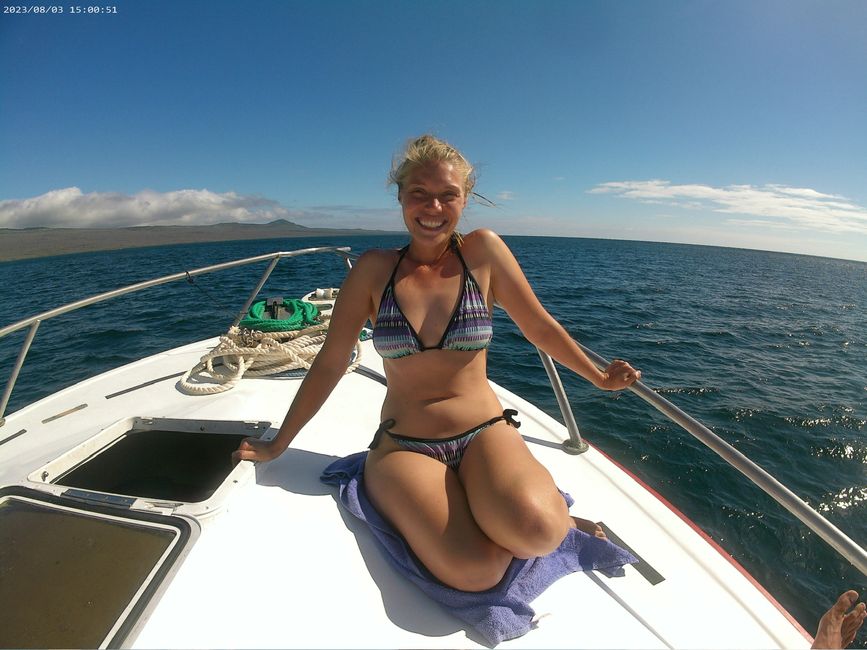
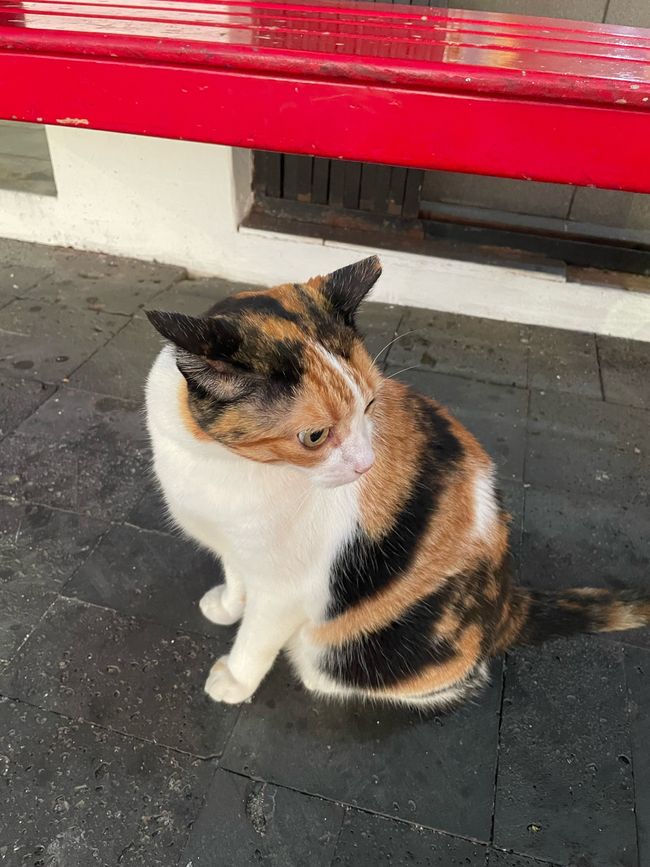
Bhalisela i-Newsletter
After a short flight, we arrived on the island of San Cristóbal, where the capital of the Galapagos Islands is located. The airport was charmingly small, and our luggage was scanned multiple times to make sure that we didn't bring anything prohibited to this tightly protected archipelago. As soon as we stepped out of the door, the sun welcomed us, and we quickly realized that we had arrived in paradise. Our hostel was just a few minutes' walk away, and we were able to check in right away. In Galapagos, time is a bit different. Firstly, there is an additional hour of time difference from Germany, and secondly, the day always starts early here. We were warmly greeted and received many tips for the island. We wasted no time and quickly set off. The main town in San Cristóbal is located on the western coast, and we immediately found a large number of sea lions playing and lounging in the clear water of the harbor, basking in the sun. We were immediately thrilled! A few meters further, we found even more sea lions lying on the beach in the shade of the trees, and a few swam with us in the water. It was truly like paradise! We then walked past cacti and small lizards to two beautiful viewpoints. Afterward, we went snorkeling in a small bay. We walked over black stones to a wooden platform, where - as it seems to be the case everywhere here - sea lions basked in the sun, and from where we could jump into the water. At first, we didn't see much besides fish, but then two sea lions started playing underwater and darted around us. After getting a bit cold, we moved on to enjoy the beautiful sunset on the beach with the sea lions.
For the next day, we had arranged a small tour of the island with the hostel. Jorge was our driver and first took us to a volcanic crater lake. All the islands are supplied with fresh water from this reservoir, and it also serves as a large bathtub for the frigatebirds to clean their feathers from the salt. When we stood at the top, fog covered the lake, giving it a mystical aura. We then went to a tortoise reserve, where the collected eggs of the giant tortoises are incubated under protected conditions and raised until the age of 5. This is how the population is being rebuilt, which unfortunately is threatened by rats, cats, or dogs that eat the eggs. Afterwards, they are brought back to their natural habitat in the north of the island. We walked along the circular path and discovered not only the cute baby turtles diligently munching on their lettuce leaves but also gigantic fully-grown turtles, some of which still live here. We realized that tortoises don't walk so slowly after all and have unbelievably large shells and funny, wrinkled necks. The last stop on our tour was a beautiful beach, Puerto Chino, with fine white sand and crystal clear water. Darwin's finches fluttered around us, and a sea turtle and two sea lions swam in the water - could it be any more beautiful? In the afternoon, we walked to another beautiful beach, where some sea lions were lying around, and despite poor visibility, we found a sea turtle while snorkeling. For the rest of the day, we lounged on the beach and let the sun shine on our bellies. After dinner, we strolled along the beautiful harbor promenade again and observed the sea lions, which could almost be called sea sheep - the funny noises they made sounded like a bleating sheep. They also didn't seem to care about the sleep of the others and didn't hesitate to search for something or someone. So a little troublemaker waddled loudly bleating across his comrades, who responded with an annoyed "baaah". These sea lions are very cute and very funny animals!
The next day, we booked another diving excursion. First, we made a stop at a small beach to go snorkeling. Here we saw a rarity, as our guide explained to us, namely an iguana feeding underwater! He said that the National Geographic photo teams often wait for weeks for such an opportunity, and we observed the iguana enjoying its lunch for several minutes! These dragon-like creatures live both on land and in water and are only found on the Galapagos Islands. We also saw two turtles again, a small stingray, and were followed by a very persistent pufferfish 😄. After a little snack of our own, we headed out to sea to the "Kicker Rock", a rock where many marine animals gather - perfect, because we were on a mission to see hammerhead sharks! During the first dive, we initially observed many fish and some turtles gracefully gliding through the water. Just when we thought we might have missed the hammerhead sharks - the visibility was not perfect - our diving guide suddenly sped up and swam ahead, gesturing wildly. He had seen a shadow, and we followed him. The shadow turned out to be more than 15 hammerhead sharks, calmly swimming past us, completely unaffected by our presence. Wow! We were breathless, as sharks are always a bit awe-inspiring. Plus, Philip was running low on air in the reserve area, and the dive instructor let him breathe a bit with him so that we could all watch the sharks for longer. After that, we resurfaced and returned to the island for lunch.
The next day, we set off early in the morning on a speedboat, which runs twice a day, to the next island: Santa Cruz.
Bhalisela i-Newsletter
Phendula
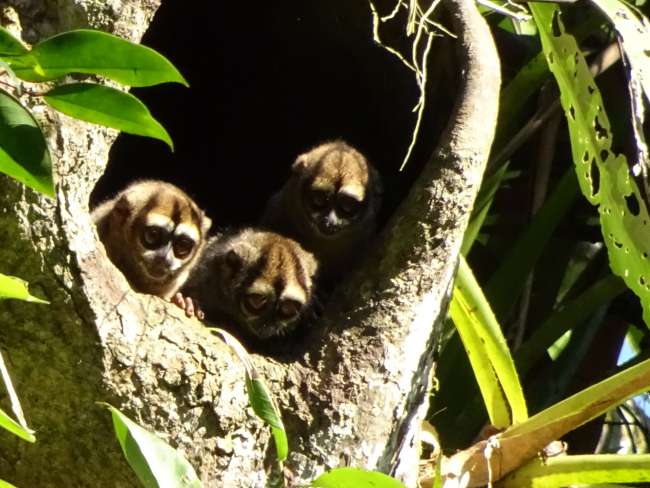
Imibiko yokuvakasha E-Ecuador
